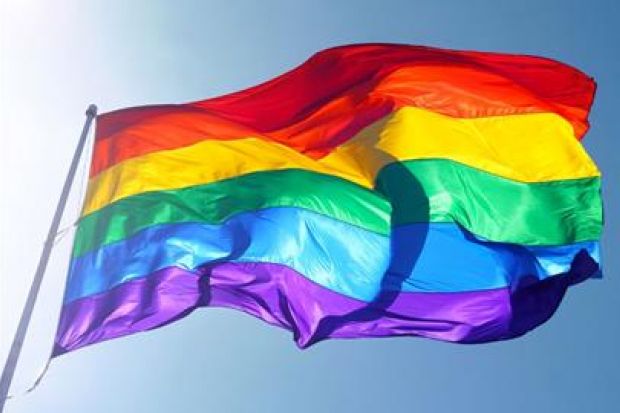For the past four years I have led the LGBT+ staff network at Robert Gordon University (RGU) in Aberdeen, Scotland. We organised the network in January 2014 with the aim of providing a safe space where self-identifying LGBT+ staff could meet, share information, voice their opinions on university policies, share experiences establish a visible presence on campus. We wanted to build an inclusive environment in which all staff could reach their full potential without the fear of prejudice or discrimination.
And we are not alone. There are now a large number of UK universities with active staff networks involved in equality awareness-raising, fundraising, policy development, mentoring, leadership training and support for LGBT+ staff. The growing number of self-organised support networks on campus are central to building equality and diversity in higher education. Universities are well-placed to demonstrate a welcoming environment for all staff and students to succeed regardless of their age, disability, gender reassignment, marriage, sex, sexual orientation, and pregnancy or maternity.
Our network was launched in a staff bulletin and we used our first meeting to set out the social activities that we would run throughout the year. Early on we realised that we could not advance equality and diversity on campus without the support of our allies. We didn’t just want to have a meeting once a month where LGBT+ staff felt accepted without discrimination. We wanted a university community where all staff, students and visitors to the university would be accepted.
In four years we have established a visible RGU rainbow network through active campaigns and events with support from LGBT+ staff, students and our allies. For example, our rainbow lanyard campaign (#RGUPrideonCampus), which we launched in November 2017, has been a huge and long-lasting success.
We wanted to do something to increase the visibility of LGBT+ staff, students and allies in the workplace and the rainbow lanyard was the right vehicle to make this happen. Through generous funding from the university we purchased a stock of lanyards, but demand was so high that the stock ran out quickly.
We secured funding for more lanyards and continue to distribute them to people who support equality and diversity on campus. We currently have more than 600 LGBT+ staff, students and allies wearing the lanyard every day and receive requests for them on a daily basis.
We also launched an LGBT+ allies programme during LGBT+ history month in February to encourage all staff to support LGBT+ staff and students to call out homophobia, biphobia and transphobia in the workplace.
These campaigns have been effective in raising awareness around equality issues that would not have been possible without the rainbow network’s vision and drive to demonstrate that the university is an inclusive environment.
However, the network is not the only contributor to improving equality and diversity on campus. The students’ union actively participates in the Stonewall rainbow laces campaign to encourage everyone involved in sport to show their support for LGBT equality and inclusivity. This year the network supported the women’s football team on varsity day when students wore rainbow laces in local derby matches against the University of Aberdeen.
We also have internal activities for our members, such as a regular monthly Rainbow Coffee on Campus event, which is fully funded by our university hospitality suppliers. This provides staff with a safe space to meet, network, share ideas and experiences, and discuss any topical issues that they feel other network members can support them with, or for which they need to be referred on to specialist support.
We’re also working to include people off campus. Our monthly rainbow film night screens LGBT+ movies to showcase the experiences of LGBT+ people. This event reaches out to all LGBT+ staff, students, allies and the local community to raise the awareness of equality and diversity and to demonstrate RGU’s commitment to providing an inclusive and supportive environment for LGBT+ people.
Having a self-organised group that has clear aims to improve the experiences of LGBT+ staff, to voice our opinion and to be visible in the workplace is central to encouraging genuine engagement with the notion of an equal campus.
Equality shouldn’t be seen as an HR or equality officer’s responsibility. Everyone has the opportunity to point out discrimination, to be an advocate for equality and inclusion and to create friendly and welcoming workplaces where individuals can bring their whole selves to work.
Hamish Walker is chair of the Rainbow Network at Robert Gordon University.
